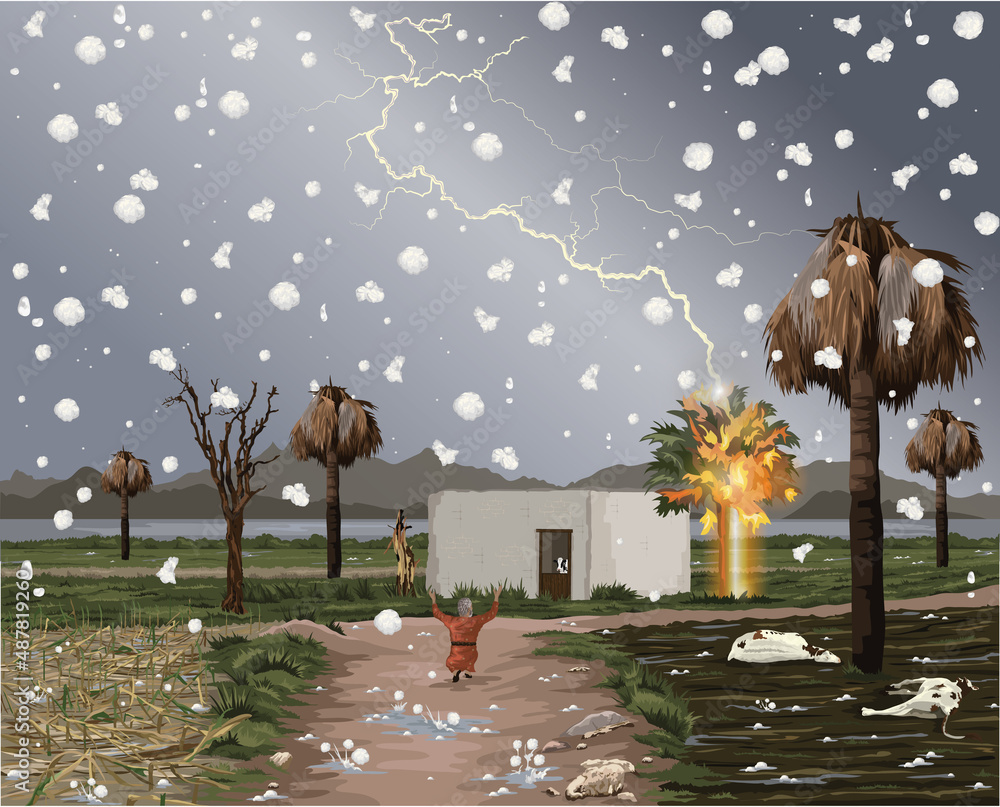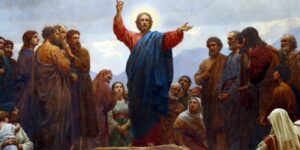Introduction
The seventh plague that struck the ancient land of Egypt, during the time of Moses was a destructive storm of hail. The first plague and this account recorded in Exodus shows God in action wielding his mighty power against Pharaoh as the story moves forward revealing the consequences of Pharaoh’s continued stubborn defiance. We will go in details in biblical account, its significance and what spiritual lessons we can get from this incident.
The Plague of Hail
Biblical Account
The plague of hail is a severe weather event that God sends as a judgment upon Egypt. At God’s command, Moses stretched out his staff toward the sky, and the Lord sent thunder, hail, and lightning that struck the ground (Exodus 9:22-26). The hailstorm was more ferocious than any the Egyptians had ever known and destroyed crops, livestock, and anyone who was out in the fields; it devastating the entire country. Not every trial wore any effect however Goshen the trill where the Israelites Mine in was safe.
Divine Judgment
This plague was a direct attack on the Egyptian economy and agriculture. The food supply was destroyed with the burning of crops and livestock, illustrating the power of God over nature. Pharaoh has been warned time and again, now his refusal to release Israel is underscored by the severity of the hailstorm.
Pharaoh’s Response
Pharaoh’s heart remained hardened and he did not respond. As bad as lightning, as devastating as the horrors of levels six and seven, but temporary he relented of his sin and requested that Moses intercede to ask God for the hail to be ended but only for a while. As soon as the storm was over, he changed his mind and would not permit the Israelites to go, provoking his heart still more against the divine injunction.

Modern Interpretations and Lessons
Symbolic Interpretations The plague of hail symbolizes the destructive power of God’s judgment against defiance and disobedience. It serves as a reminder that God’s authority extends over all creation and that His judgments are both righteous and severe.
Meteorological Insights Some scholars suggest natural explanations for this plague, such as an unusual weather phenomenon. However, the biblical narrative emphasizes the divine orchestration and timing of these events, reinforcing their theological significance.
Spiritual Lessons This plague imparts several spiritual lessons:
- Obedience to God: The destruction caused by the hail highlights the importance of obeying God’s commands and the dangers of persistent defiance.
- Divine Power: The plague demonstrates God’s supreme power over nature, emphasizing His authority and control.
- True Repentance: Pharaoh’s insincere repentance serves as a cautionary example of the need for genuine repentance and humility before God.
Conclusion
The plague of hail is a powerful demonstration of God’s judgment and a key event in the narrative of the Ten Plagues of Egypt. This event underscores the importance of obedience to God, the severity of divine judgment, and the necessity of true repentance. Reflecting on this biblical account reminds believers of God’s authority and the importance of living in accordance with His will.








